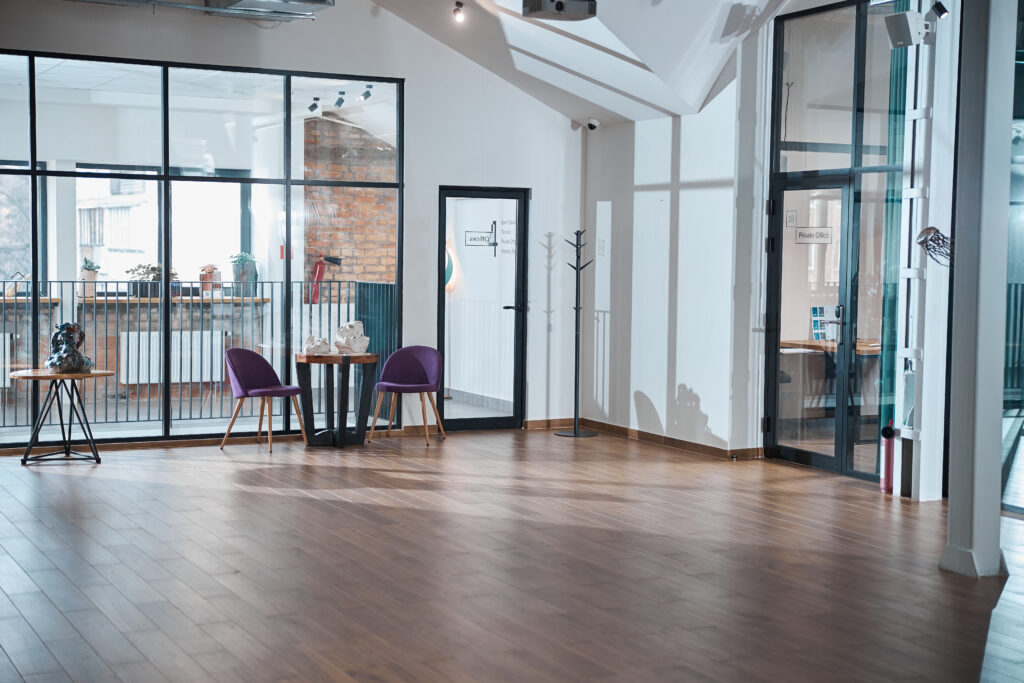
The days of traditional offices are in flux. Induced by the pandemic, the recent switch to remote work by companies throughout the country has freed up many office spaces that were previously used for onsite work, leading to new investment opportunities. At times, companies simply abandon office buildings in search of better alternatives. As more office buildings fall to vacancy, investors are considering ways to reimagine their usage. Today, we’ll consider the use of vacant office buildings as investment properties in Baltimore as well as the pros and cons.

Using Vacant Office Buildings as Investment Properties in Baltimore: The Positives
As a result of the pandemic, many companies have switched to remote work, leaving many office buildings vacant. Also, some office buildings in Baltimore have remained vacant for years even before the pandemic, and are being reconstructed into rental or residential properties.
For example, the Fidelity & Deposit Building located in downtown Baltimore is being converted into rental apartments and commercial spaces. As an investor looking for new investment properties in Baltimore, you might want to look at the vacant office spaces. Here are some benefits of investing in vacant office spaces:
1. More Housing
The lack of affordable housing has posed a huge problem in many cities, including Baltimore. However, one way to reduce this challenge is to convert unused office spaces into affordable apartments.
Also, in many cases, it’s easier and faster to convert vacant office spaces into living spaces instead of building from scratch. This helps to provide a quick solution to the housing crisis.
2. Less Vacant Buildings
Apart from more housing, investing in vacant office buildings directly helps in reducing the number of vacant buildings. This works like killing two birds with a stone. While helping to solve the housing crisis, it also reduces the number of empty buildings in the city. Converting vacant office spaces into apartments, stores, or restaurants also helps to liven up deserted areas in the city.
3. Rehabbing Historic Properties
Several historic properties were used as office spaces in the past but have been deserted and left to deteriorate. Investing in such spaces can help to preserve these historic pieces while also keeping them functional.
4. More Investment Opportunities
Using vacant office spaces as investment properties in Baltimore opens up many opportunities. For example, vacant office spaces can be converted into apartments, restaurants, and stores, that’ll offer more opportunities for investors to make a good return.
Also, investing in a vacant office space in a good location, such as in areas with a large population can provide a good ROI due to the investment opportunities.

The Downsides
While there are convincing positives associated with investing in vacant office spaces, there are also some challenges associated with it. Below are the major drawbacks of getting vacant office spaces as investment properties in Baltimore.
1. Difficult to Convert
In some cases, it might be difficult to convert office spaces to residential or rental properties. Many of the structures may not be suitable for residential purposes due to the lighting, size, and other factors. These can pose a challenge during renovation.
2. Cost
When converting vacant office spaces into apartment buildings or other structures, you might need to spend a lot of capital in certain cases. Due to the layout of these buildings as well as other features, investors may need to spend a lot of money to ensure the buildings are fit for rental or residential purposes.
3. Getting Permits May be Difficult
Getting permits when converting office buildings into other structures might be difficult. This is because there are several building codes and zoning regulations that govern the construction of rental and residential properties.
These regulations cover parking space, safety standards, and other factors. Since office spaces are built in a different manner from apartments or other structures, it might be difficult to get the necessary permits needed when renovating these structures.
4. Market Preferences
Another drawback to consider is market preference. Potential buyers or tenants may not be interested in the renovated office space if it doesn’t meet their preferences. Some of these preferences include location, amenities, space and size, and other factors. If the converted space doesn’t meet the market preference, it may lead to a low return on investment.

Explore Investment Properties in Baltimore
Investing in vacant office spaces is becoming a fast-rising trend. Under the right circumstances, it offers a good investment opportunity. However, it is important to be aware of the challenges and the controlling factors before getting these office spaces as investment properties in Baltimore. If you want to explore your investment property options, reach out to the team at Ben Frederick Realty today.

